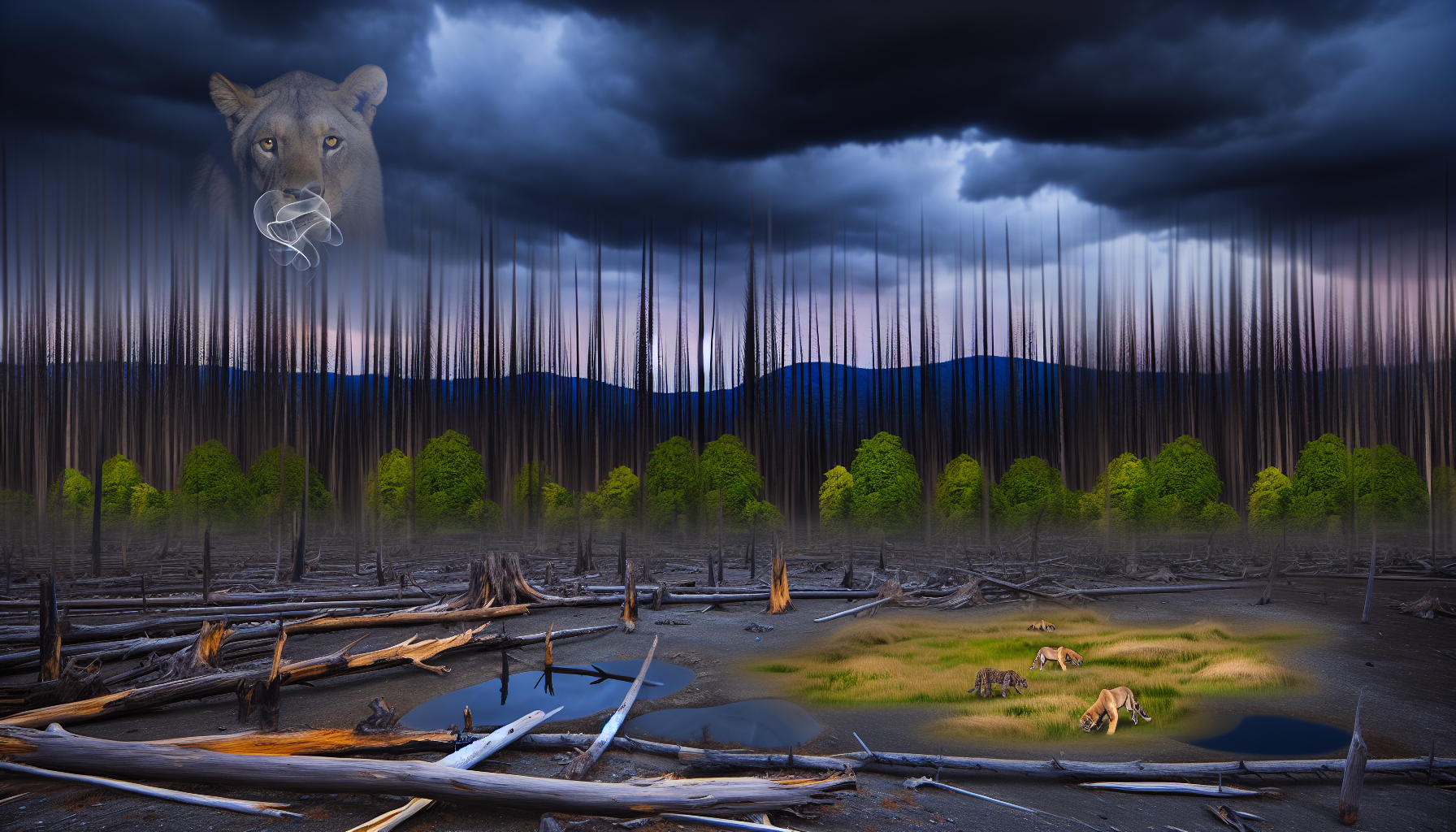In the ashes of what was once a cacophony of life, we now find the hush of oblivion. Our previous exploration into ‘The Quietening’ revealed a world muted by environmental disruption. Today, we trace the specific silencing of nature’s fiercest voices: the predatory calls that commanded respect and orchestrated the rhythm of wild ecosystems.
The roar of the lion, the howl of the wolf, the screech of a hunting hawk; these were once sounds that defined night and day across our planet’s most vibrant landscapes. Now, they are slipping into nothingness, not with a bang but with a whimper. But why should we, the distant observers, care about this hush? What does the loss of these wild calls say about our world, and what does it spell for our future?
The vanishing begins with the most obvious of culprits: habitat destruction. The relentless expansion of human sprawl has carved up the wild territories where predators once reigned supreme. Forests have been felled, waterways polluted, and grasslands converted to agricultural deserts. This fragmentation not only silences the predators but also dismembers the ecological choirs that once harmonized with their roars. As prey populations dwindle and migrate for survival, the predators’ songs of presence fade out of existence.
Moreover, climate change has cast a long shadow over the predatory symphonies. Altered weather patterns and shifting climates force these creatures to abandon ancestral hunting grounds, leaving behind an eerie quiet. The once predictable choruses, synchronized with the seasons, now falter under the strain of an unstable climate. Starvation and stress silence once thriving populations, with the ripple effects resonating throughout their dwindling numbers.
Poaching and illegal hunting have claimed the voices of these majestic creatures for trophies and trinkets. The roar of a lion, the purveyor of the savannah’s law, is now more likely to echo in a poacher’s sordid memory than across its natural kingdom. Each silenced predator marks the erasure of an irreplaceable stanza from the song of the wild.
Disease, an oft-overlooked assassin, thrives amidst the chaos of weakened immune systems and condensed populations. Outbreaks can decimate predator groups swiftly, leaving a void not just in the soundscape, but in the complex web of life, as uncontrolled prey populations lead to further ecological imbalance.
Through sophisticated acoustic monitoring and citizen science initiatives, the desperate state of predator calls could offer critical data points for understanding the health of our ecosystems. Yet, in this data, we find a glaring revelation: the silence is deafening, the loss is vast. The puncturing scream of an eagle on the hunt may soon be a fable told by the wind, while the deep growl of a stalking jaguar, a ghostly legend printed in the annals of history.
As we witness the eradication of these voices, we must ask ourselves: what remains in their absence? The disruption of the natural order. The unchecked boom of prey populations, followed by starvation and disease. The once complex tapestry of life unraveling before our eyes.
And yet, in this desolate soundscape, there persists a sliver of denial. Some argue for the invisible hand of nature to correct itself or for human ingenuity to craft solutions after the eleventh hour. To them, I present the silent dawn, the muting of night’s conductor, and inquire: what orchestra remains to be conducted in a world that has renounced its musicians?
In conclusion, the disappearance of predatory calls is not just a loss of natural music; it’s an omen of the brokenness of our planetary systems. While the echoes of these powerful calls fade, our accountability amplifies. It reinforces the dire necessity to confront our actions and inactions that led here. We must listen closely, for in the void of the unheard roars, lies the desperate plea for change.
